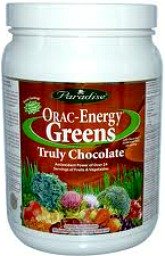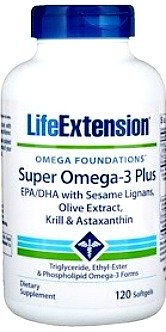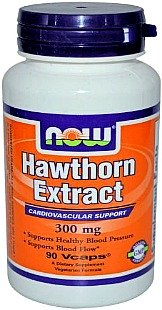Ginkgo Biloba benefits: Natural vascular straightener and intelligence booster
Ginkgo Biloba benefits range from improving blood flow, brain power and eyesight. However, it is primarily a circulatory herb used for treating vascular diseases.
The benefits of Ginkgo Biloba are attributed to flavonoids Ginkgolides and Bilobalide. These two, also have potent antioxidant properties which helps them neutralize free radicals.
However, there mode of action is not that simple. They can do much more.
GINKGO BILOBA BENEFITS FOR HEART DISEASE
It may protect the heart and blood vessels from damage, while helping in regeneration process. Ginkgo Biloba is mostly used in treating vascular diseases such as peripheral vascular disease and varicose veins.
It improves blood flow, by preventing restriction of the blood vessels thereby relieving pain and discomfort, associated with the disease. Since it is natural blood thinner, it may even reduce blood pressure, slightly.
Ginkgo Biloba is also useful in lowering the risk of atherosclerosis, thrombosis and heart attack since it may help remove plaque from the arteries, neutralize free radicals, prevent oxidation of LDL cholesterol and platelet aggregation.
I took it individually and along with other herbs. Personally, I saw better results with circulatory formula. It helped me ease the pain and bruising, in the arteries of my calf muscle which I was experiencing due to overtraining.
GINKGO BILOBA BENEFITS ON THE BRAIN
Although it is one of the best circulatory herbs, Ginkgo Biloba has even bigger role in treating brain disorders and improving mental health.
By increasing blood flow to the brain and the amount of oxygen available to the brain cells, it may help improve our mental abilities.
Ginkgo may improve concentration, memory, thinking, learning ability and mental clarity. However, it is also used to treat depression, anxiety and panic attacks. It may even help prevent development of dementia and age related diseases such as Parkinson's and Alzhimers.
Although, I took it for my vascular problems, I did expirience some benefits of ginkgo biloba, regarding my mental health. I was able to focus on task at hand, easier, while my memory improved a bit as well as ability to think more clearly and creatively.
GINKGO BILOBA BENEFITS FOR EYE HEALTH
Ginkgo Biloba is very useful in improving eyesight and treating age-related eye problems such as macular degeneration, glaucoma and cataracts.
It increases blood flow and scavenges free radicals, thanks to its antioxidant properties, while it prevents hemorrhages, by strengthening tiny blood vessels in the eye.
However, it is even more effective when combined with carotenoids such as lutein, lycopene, zeaxanthin, beta carotene and astaxanthin.
GINKGO BILOBA SIDE EFFECTS AND INTERACTIONS
Besides Ginkgo Biloba benefits, there are some side effects associated with the herb since it is natural blood thinner. It can interact with anticoagulants and increase the risk of bleeding. This includes medications such as warfarin and aspirin as well as supplements such as fish oil and garlic.
The herb may interact with MAO inhibitors and other anti-depression medications, too. If you do take some of these drugs and your are planing to take Ginkgo Biloba, consult with your doctor, before mixing the two together.
Other Ginkgo Biloba side effects may include nausea, vomiting, stomach discomfort, headaches, dizziness and even arrhythmia.
DOSAGE
Normal dosage ranges from 120 mg to 240 mg per day, divided in two to three servings. Higher doses may cause irregularities in the heart beat, without any additional benefits of ginkgo biloba.
Most circulatory formulas contain from 50 mg to 100 mg of Ginkgo biloba. Since you have to take them two to three times per day, you will get enough of it, to experience Ginkgo Biloba benefits.
TIP
If you have vascular disease, then rather take ginkgo with other circulatory herbs such as cayenne, garlic, butchers broom, horse chesnut and hawthorn. The circulatory formula will give you better results, then the herb alone could.
CONCLUSION
Besides being one of the most well known and frequently used herbs in traditional chinese medicine, Ginkgo Biloba is also considered an adaptogen. Adaptogens are able to increase life span, improve immune system as well as our resistance to stress.
Although Ginkgo is not strong as some of them, it has some unique abilities that other adaptogens lack. As most of them, it can protect the kidneys, liver, heart and DNA from damage.
Thanks to Ginkgo Biloba benefits, regarding blood flow, it may even restore circulation to the areas of the brain damaged by stroke and relieve the symptoms of tinnitus.
- Heart Healthy Diet: Simple Tips and Guidelines
- Learn everything you need to know about heart healthy diet and find the right one for you. Implement few simple tips for immediate benefits.
- Heart Healthy Foods: How to Get the Most from Them
- Heart healthy foods can improve cardiovascular system function. Foods good for the heart are bursting with vitamins, minerals and rejuvenating phytochemicals.
- Herbs for the Heart and Cardiovascular System
- You have heard for hawthorn and garlic but there are few other herbs for the heart which can help in treating heart disease, naturally.
- The Best Heart Health Supplements
- Besides fish oil, there are several heart health supplements which can be useful. This includes Coenzyme Q10, Salicin, vitamin D3 and few others.
- Heart Healthy Spices
- Although there are many heart healthy spices out there, each of them can help prevent and treat heart disease in its own way, thanks to different types of flavonoids in these heart spices.
- Stress and Heart Disease: How are They Connected
- Stress and heart disease are closely related. In order to decrease the risk of heart problems, we have to learn how to handle the stress and treat its consequences, if we are unable to avoid it.
- Cardio Exercises for the Heart and Cardiovascular System
- Cardio exercises are vital part of natural heart disease treatment. However, which kind of heart exercise you should preform, varies from person to person.
- Good vs Bad Cholesterol: How to Improve Cholesterol Values
- Good vs bad cholesterol conflict is somewhat misunderstood. There is no good or bad cholesterol but only high or unbalanced cholesterol.
- Good Fats vs Bad Fats: Nutritional Facts and Guidelines
- What is the real truth when it comes to good fats vs bad fats? How much dietary fats should you consume daily and what are the best food sources of healthy fats?
- High Blood Pressure Remedies
- High blood pressure remedies range from tips and lifestyle modification to herbs and supplements. However, the method that works for someone else, may not work for you.
- Normal Heart Rate: How is Regulated and Influential Factors
- Normal heart rate varies from person to person. Although, age affects resting heart rate, there are many other factors that can raise or decrease heart rate.
- How to Lose Fat: Overlooked Tips for Weight Loss
- How to lose fat is surely one of the most intriguing questions for so many people. However, the answer is very simple. Eat healthy foods, perform fat burning exercises and take care of your hormones.
- Hormones and Heart Disease Connection
- Don't neglect hormones and heart disease connection. If you want to treat or prevent heart disease you have to balance your hormones.
- Heart Disease and Immune System Connection
- Heart disease and immune system connection is often overlooked, while trying to improve cardiovascular system function. However, there are several things you can do to change this.
- Dental Health Heart Disease Connection: Facts and Tips
- Dental health heart disease connection is one of three overlooked factors, along with hormones and immune system. However, with smart and effective approach we can change this.
- Causes of Heart Disease
- There are many causes of heart disease and factors that can increase or decrease your risk for developing heart related problems. Check how to turn the tide in your favour.
- Symptoms of Heart Disease
- There are few main symptoms of heart disease. Find out which are they, how to recognize them as well as my personal experience with some of them.
- Diagnosis of Heart Disease
- Accurate diagnosis of heart disease is the first step toward recovery. You can't start with treatment before you know what kind of disease you have, obviously.
- Treatment for Heart Disease: Medications and Surgeries
- Standard treatment for heart disease consists of surgeries, medications and devices. Which one is right for you, depends on your condition.
- Heart Disease Blog
- This is a blog about natural remedies, personal stories, helpful herbs and supplements, workout program as well as other tips and facts which may help people faced with heart disease.
- Contact Me
- Ask questions and leave comments about this site here.
- About the Author of Heart Health Guide
- About the author of Heart-health-guide.com website.
- Heart Health Guide Sitemap
- This is sitemap of Heart Health Guide.com. If you want to get better overview of informations on this website, you can get it here.
Copyright © - Heart Health Guide - All Rights Reserved.



